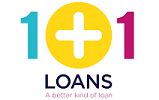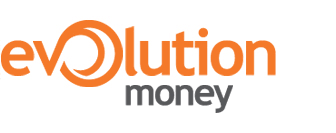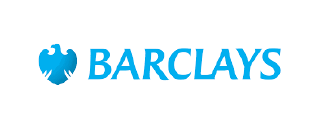Our Lenders
We work with Lending Expert to give you access to a panel of leading lenders well placed to meet your needs at the lowest rates.










The APR for a typical payday loan is usually around 1,000% APR and this is much higher than your average personal loan. This is because the duration of the loan is just a few weeks and the figure is compounded over and over to make the rate easily comparable to an annual product.
To find the real cost of a payday loan, you should look at the repayment examples offered by the lender and compare this to other products side-by-side. As per the FCA regulation, the daily price cap for a payday loan is a maximum of 0.8% and this can also give you a more clearer indication of the cost of a loan.
Payday Loans are known for having a high APR because:
- The loan is only a few weeks, but is multiplied to make the loan seem like an annual product
- Payday lenders have to state their loan as an APR because it is required by law and the FCA regulator
- Payday loans are generally quite expensive because they are offered to people with bad credit and the rate of default is quite high (at around 20% to 30%)
Why is APR Used To Measure Payday Loans?
The APR is the official measure for all financial products and is used for every type of loan including credit cards, mortgage, car finance and indeed, payday loans. The APR is the ‘annual percentage rate’ and this rate allows prospective borrowers to compare the cost of a financial product for an entire year. At a glance, it is very easy to see that something is 20% APR or 50% APR and this can give you an indication of its cost.
The FCA, which is the regulator of the industry, requires all payday loan companies by law to state the APR clearly on their websites, documents and in all representative examples. Payday loans are deemed to be quite expensive products, especially when not used correctly, so making this cost clear is very important to ensure smooth regulation of the industry.
For payday loans, using the APR has always been a difficult and controversial measure, because a loan can sometimes only last 3 or 6 weeks and therefore the price tag should not be represented as though it were an entire 12 months.
Therefore, when comparing the cost of a payday loan, you should always look at other measures including the repayment examples and the daily interest rates, as we discuss further below:
How Does The APR of Payday Loans Compare To Other Products?
When compared to other financial products and loans, payday loans are considered to be far more expensive. For credit cards which are considered the closest alternative, the cost of using a card can be 0% credit cards if paid off on time or with charges of 36% APR for those with bad credit and with missed payments.
Some APR for things like logbook loans, guarantor or secured loans are a little less, because they are backed up with some kind of security such as a car, property or a co-signer. But generally speaking, payday loans look more expensive according to the APR when compared to other products as per our table below:
| Financial Product | APR | Credit Scores |
| Payday Loans | 1,000% APR | Bad Credit |
| Personal Loans | From 6% APR | Good and Fair Credit |
| Pawnbroking Loans | 120% APR | Bad Credit |
| Logbook Loans | 400% APR | Bad Credit |
| Guarantor Loans | 49.9% APR | Bad Credit |
| Credit Unions | 26% APR | Bad Credit |
| Credit Cards | 0% to 36% APR | Good and Fair Credit |
| Mortgages | 4% to 6% APRC | Good and Fair Credit |
| Secured Loans | 6% APR APRC | All |
| Car Finance | 6% to 11% APR | All |
Why Are Payday Loans So Expensive?
Fast Funds – What makes fast payday loans attractive is the promise of quick funds. With small loan amounts of £200 and £300 and often completely online applications, customers can sometimes receive their funds within 15 minutes to 1 hour after being accepted. If there are further checks, it is still probable that you can receive funds on the same day of applying. This convenience, especially when you have an emergency, means that you are paying a premium for the speed of transaction.
Bad Credit Accepted – Payday loans are typically designed for people who need financial help before the end of the month and this also means that people are accepted with poor credit histories including those with a history of CCJs (see CCJ loans), IVAs and bankruptcy. By lending money to people who are on the riskier side, the rates charged by lenders are bound to be higher to manage this looming risk of default.
Loans Are For a Short Period – Borrowers will only use payday loans for a few weeks and this means that they do not mind paying the higher price for a loan, knowing that they are going to pay it back in full very soon. Paying these kinds of rates for a longer period would be impractical and unfeasible for many. Hence, you will notice that the cost of mortgages and secured loans is less.
Payday Loans Have High Default Rates – It is said that around 20% to 30% of payday loan customers are unable to repay their loans, despite a number of affordability checks carried out beforehand and customers are aware of the implications of non-repayment. With this in mind, the rates charged are usually a little higher than average to combat the potential losses. In many ways, those that repay their loans on time, especially the good customers, may be overpaying for the sake of those that do not.
How Do You Truly Measure The Cost of a Payday Loan?
To better understand the cost a payday loan, you can look at:
- The Daily Interest Rate – This is capped at 0.8% per day and is still higher than most other loans, which may start from 0.5% per month (personal loans and mortgages). However, you have peace of mind to know that the cost of your loan cannot exceed this by law and thus, you should never be paying back double the amount you have requested to borrow.
- Representative APR – This rate will always be advertised on the lender’s website and in their advertising. It is the rate given to at least 51% of successful customers, but can be higher or lower than this rate depending on factors such as income, affordability and credit score and even the rate and time that the lender is granting you a loan.
- Use a Repayment Example – Lenders are required to present a repayment example by FCA law. Use these examples and any calculators provided to see how much you are really paying for a loan before you apply and compare this with other lenders and products out there before you proceed.
How Do You Make Payday Loans Cheaper if The APR is So High?
There are a number of ways to make payday loans cheaper if you need to. Notably, having a better credit score should give you access to better rates than those with bad credit.
Since the loans work on a daily interest rate, the more days that you have the loan open, the more interest you repay. Lenders will always give you the option to repay your loan early and if you feel that you can clear the account a week or two earlier than expected, you will save heavily on the interest.
You need to make each repayment on time, because the added fees and penalties for missing a repayment and not repaying your loan can start to add up. If you are struggling to repay, you should speak to your lender as soon as possible to discuss the different options.
Finally, it is worth considering any alternatives. Whilst payday loans can be fast and effective, it is far cheaper (and free) to borrow from family and friends. If you would prefer to go down the loan route, there are very cheap loans available from credit unions and even using credit cards with 0% can be effective if you need to borrow money to make a purchase.